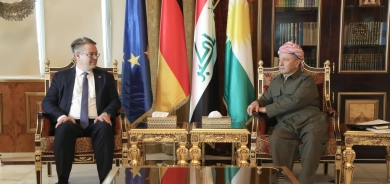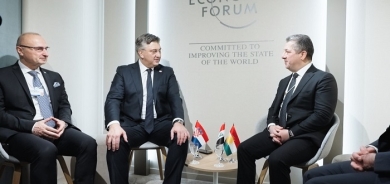EXPORTING KURDISTANI OIL: HOW MUCH DOES IT MAKE THE KRG ECONOMY INDEPENDENT?

There are many independent states in today’s world whose economy is much weaker than that of the KRG’s. Thus, at first glance the KRG’s oil richness would seem to guarantee a secure access to political independence. Indeed, the KRG region has reached deals with ExxonMobil, Chevron, and Total as it seeks to develop its energy industry and potential political independence based on its energy resources. Crude oil from Kurdistan has begun flowing through a new pipeline to the Turkish Mediterranean port of Ceyhan. Taner Yildiz, the Turkish Energy Minister has declared that the pipeline would carry 300,000 barrels per day and would soon rise to 400,000. Eventually Kurdistan could export some 2 million barrels per day and at least 10 billion cubic meters per year of gas to Turkey.
However, Baghdad objects that the KRG’s actions could lead to the disintegration of Iraq and strongly opposes the KRG-Turkish oil deal. The United States supports Baghdad on this issue for the same reason. Can the KRG afford to alienate both Baghdad and the United States?
Turkey reassures Baghdad that it respects Iraq’s territorial integrity and that the oil deal with the KRG will help all of Iraq. Yildiz has even promised Baghdad that the oil it is beginning to receive from the KRG region is being stored and will not be exported without Baghdad’s consent. Thus, argues Turkey, the KRG-Turkish oil deal also will benefit Baghdad. However, Turkey’s main purpose in importing the oil is to use it for its own domestic needs, not to export it to third states.
Moreover, as far as enabling potential KRG independence, since 95 per cent of the Iraqi budget—17 percent of which is supposed to go to the KRG—literally flows from oil, this makes Iraq and the KRG classical rentier states and subject to all the problems associated with that status including very little industry or even agricultural output. The majority of goods and services are imported. Any deterioration in oil prices would immediately affect the KRG region, including the government, the private sector, and the people.
Thus, in spite of its oil wealth, sustainable KRG independence would require economic diversification, an up-and-running banking system, and a working taxation system. Successful KRG independence cannot depend just on oil exports. What good would failed independence be especially since the KRG is doing so relatively well as a federal state that remains formally part of Iraq while largely running its own affairs domestically and internationally?
In addition, dependence on oil exports to Turkey not only arouses the opposition of Baghdad, but also simply trades dependence on Baghdad for dependence on Ankara. Is this what the Kurds really want? Some might respond yes!
Compared to Iraq, Turkey continues to be a more successful democratic state that has taken enormous, positive steps towards accommodating itself to Kurdish needs and demands for its own interests to make Turkey itself more successful. Furthermore, Turkey is now the 16th largest state economy in the world. Landlocked Kurdistan obviously requires good relations with Turkey to enjoy any chance for continuing economic success.
Further, if Turkey joined the European Union, as it has been formally seeking to do since 2005, the KRG would be allied economically and politically with one of the most advanced economic blocs in the world that also offers considerable political protection to its members. For their part the Kurds would offer Turkey the Kemalist security it has always sought to the detriment of the Kurds, but now with the support and cooperation of the Kurds because it would now be to the benefit of the Kurds! What just a decade ago might have seemed counterfactual, would have become a reality.
Professor Michael Gunter
USA

 Michael Gunter
Michael Gunter











